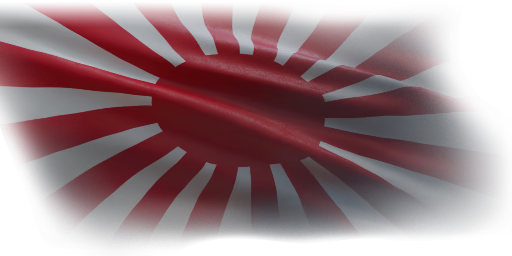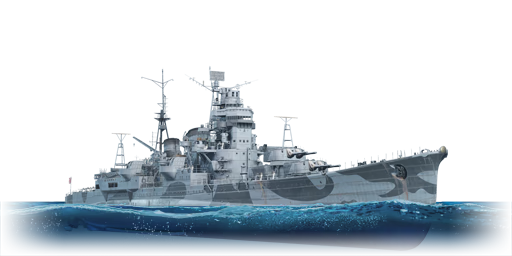The IJN Myoko (妙高, namesake: Mount Myōkō) was the lead ship of the four-member Myoko-class heavy cruiser, which was first Japanese vessel exceeding the Washington Naval Treaty limits. She was launched in 1927 and commissioned in 1929. She saw action in several battles during World War II, such as the Battle of the Java Sea, the Battle of Midway, and the Battle of Leyte Gulf. In 1944, she suffered severe damage from air strikes and could not return to Japan. She remained in Singapore as a floating anti-aircraft platform with another heavy cruiser, Takao. They both survived the war, but were handed over to the Royal Navy and sunk as target practice in 1946.
She was introduced in Update "Apex Predators". The Myoko is a cruiser with moderate armor and crew, powerful long-range cannons, and two quick floatplanes. She can take some hits, but she is better off fighting from a distance, using her forward turrets and angling her hull to protect herself. She can also capture points and ambush enemies by utilizing her speed and cover, but she has to watch out for her slow turret traverse and weak bridge. She is a versatile ship that can support the friendly fleet in different ways.











 2 x (450 / 600) %
2 x (450 / 600) % 
 2 x 184 %
2 x 184 % 
